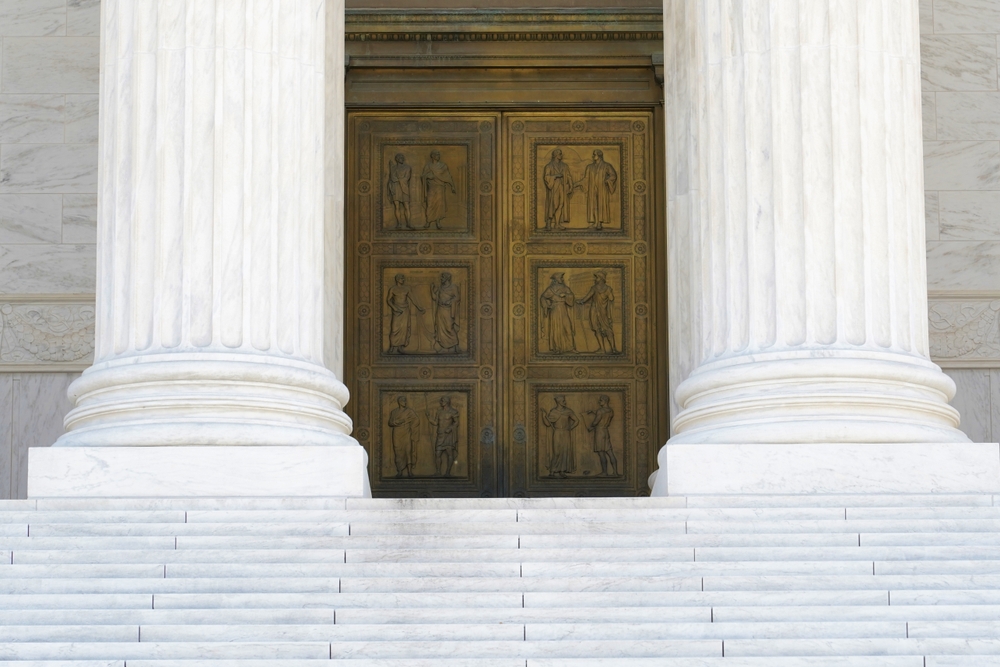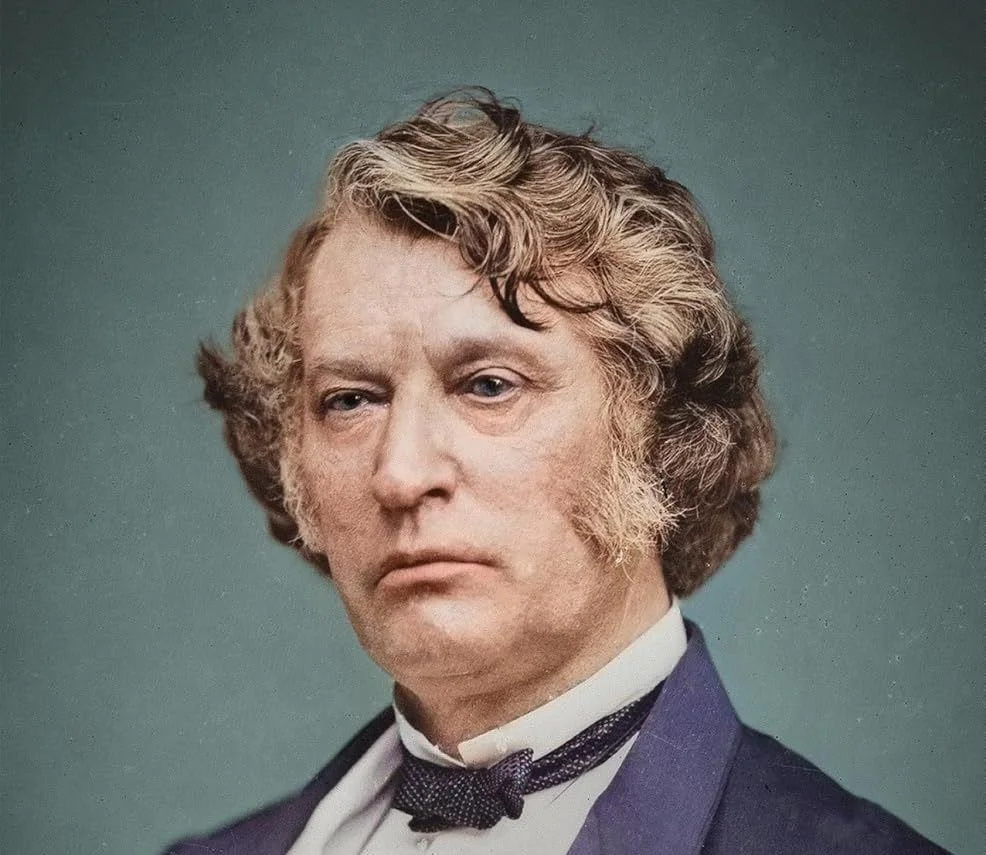.avif)
Roberts’ Rules for Defending the Rule of Law
Donald Trump is hardly the only one to have earned rebukes from the Chief Justice for attacking the judiciary.
After a district court judge in D.C. rebuked the Trump Administration’s efforts to utilize the Alien Enemies Act to deport illegal aliens with alleged ties to Venezuelan gangs, President Trump labeled the judge “a troublemaker and agitator” and called for his impeachment. “This judge, like many of the Crooked Judges’ I am forced to appear before, should be IMPEACHED!!!” the President declared on Truth Social.
On March 18, Chief Justice Roberts broke his usual silence on public affairs to reject the calls for impeachment. “For more than two centuries, it has been established that impeachment is not an appropriate response to disagreement concerning a judicial decision,” wrote Roberts in a rare release from the Supreme Court’s Public Information Office. Jeffersonian Republicans sought to impeach Justice Samuel Chase in 1804 for his allegedly erroneous rulings, but the effort failed in the Senate, establishing the precedent that disagreement with a judge’s rulings is insufficient grounds for impeaching a judge and removing them from the bench. Instead of impeaching judges, the proper response to adverse district court decisions is to file an appeal. As Roberts’ statement continued, “the normal appellate review process exists for that purpose.”
Chief Justice Roberts’ comments hardly quelled the calls for impeaching judges who have ruled against the administration, particularly in alien deportation cases. Some administration officials have even labeled adverse judicial decisions as part of a “judicial coup.”
March 18 was not the first time the Chief Justice had spoken out against unwarranted attacks on the judiciary. He responded to Trump’s attacks on an “Obama judge” who had ruled against administration policy. It would also not be the last.
Speaking in Buffalo on May 7, the Chief Justice reiterated his views, noting, “impeachment is not how you register disagreement with decisions.” As Roberts explained, judicial independence is “central” to the constitutional structure, adding that “the only real political science innovation in our constitution... is the establishment of an independent judiciary.” Alexander Hamilton in Federalist No. 22 lamented that the lack of a federal judiciary “to expound and define” the “true meaning” of the laws was among the crowning “defects” of the Articles of Confederation. For the judiciary to play that role, Roberts noted, it cannot be under the sway of either of the other branches. The “innovation” embodied in Article III “doesn’t work if the judiciary is not independent.”
Donald Trump is hardly the only one to have earned rebukes from the Chief Justice for unwarranted attacks on the judiciary. The Chief Justice’s most recent year-end report on the state of the judiciary—released before Trump returned to office – inveighed against threats of violence, intimidation, misinformation about judicial decisions, and threats to defy court orders as serious threats to judicial independence. Though some may have forgotten by December 2024, some prominent progressive voices had suggested that the Biden Administration should consider defying court orders and ignoring the Supreme Court’s decisions on high profile matters.
Perhaps the Chief Justice’s most forceful statement in defense of the judiciary came in March 2020, after Senate Majority Leader Chuck Schumer (D-NY) appeared to threaten the Court’s two newest justices at a rally in front of the Court. “I want to tell you, Justice Kavanaugh and Justice Gorsuch, you have unleashed a whirlwind, and you will pay the price,” Senator Schumer proclaimed as the Court prepared to consider an abortion case. “You won’t know what hit you if you go forward with these awful decisions,” he warned, adding, “You will never be able to do what you’re trying to do, ever, ever again.”
The Chief Justice responded more forcefully to Senator Schumer’s ominous remarks than he did to President Trump’s. His statement, released by the Court, read:
This morning, Senator Schumer spoke at a rally in front of the Supreme Court while a case was being argued inside. Senator Schumer referred to two Members of the Court by name and said he wanted to tell them that "You have released the whirlwind, and you will pay the price. You will not know what hit you if you go forward with these awful decisions." Justices know that criticism comes with the territory, but threatening statements of this sort from the highest levels of government are not only inappropriate, they are dangerous. All Members of the Court will continue to do their job, without fear or favor, from whatever quarter.
While no one appears to have acted on Schumer’s comments in 2020, a mentally unstable man did make an attempt on Justice Kavanaugh’s life two years later to prevent the Court from overturning Roe v. Wade.
Unlike many who have raised concerns about judicial independence and the rule of law in recent months, the Chief Justice has consistently defended the judiciary’s distinct role in our constitutional order and challenged those who would undermine judicial independence without regard to their political affiliation. Alas, among legal elites, this has made him the exception. Some of the same people worrying today about the Trump Administration’s threat to the rule of law dismissed the Chief Justice’s last year-end report as “tone-deaf” because it did not acknowledge that the judiciary may have brought some attacks upon itself by issuing conservative rulings. Harvard’s Laurence Tribe called it “pathetically bad in every respect.” The Chief apparently erred by calling out threats to judicial independence without acknowledging the possibility that some attacks on the courts result from unpopular opinions.
As the Trump Administration has stretched the bounds of executive power and adopted an unusually adversarial posture toward the courts, a great array of legal elites have raised their voices to defend the rule of law and an independent judiciary. Alas, many of these voices were all too quiet until very recently.
Many of those (rightfully) aghast that public criticism of district court judges has led to threats on their safety were muted when there was an actual attempt on a justice’s life and offered little support to those seeking to increase security for the federal judiciary across the board before the criticisms came from Trump.
This past week, many progressives have praised Judge Richard Myers for ruling against a Republican effort to overturn a state Supreme Court election in North Carolina. Yet those praising Judge Myers now were silent when Myers’ nomination (by Donald Trump) was pending and over twenty Senate Democrats sought to block his confirmation to the federal bench.
This blinkered vision is not new. After Donald Trump took office in 2017, a group of liberal academics launched the “Take Care Blog,” with the statement mission of “ensuring the President ‘shall take Care that the Laws be faithfully executed.’” Yet this concern only lasted so long as Trump was in office. The blog has not been updated since 2021, but it is hardly as if the Biden and Obama Administrations never transgressed the limits on executive power or sought to evade judicial review.
The point here is not “whataboutism.” The failure of legal elites to call out the efforts of prior Democratic administrations to ignore legal constraints and evade judicial review does not excuse the Trump Administration’s conduct. Two wrongs do not make a right, and there are plenty of wrongs.
But if one is concerned about defending the rule of law, recognizing that threats may come from multiple directions is necessary, as a matter of prudence and civic hygiene. If one wants to be taken seriously as a defender of neutral values, and not merely a partisan wielding whatever rhetorical sword is useful in the moment, one has to aspire toward consistency.
Organizations such as the Foundation for Individual Rights and Expression (FIRE) have credibility on free speech because they defend free expression across the political spectrum. Accordingly, when FIRE says a government action raises free speech concerns, many will listen who might otherwise have looked the other way. Those who recognize free speech as a value are more likely to heed FIRE’s call to protect the speech of their political adversaries. (In contrast, the American Civil Liberties Union (ACLU) has lost credibility by trimming its support for speech that conflicts with other progressive ends.)
When legal elites turn a blind eye to threats to judicial independence and the rule of law from their political allies, they degrade the value of their voices. The ability to identify transgressions against one’s own interests is a sign of good faith and demonstrates that the principle actually matters and is not simply a useful cudgel to wield in political combat. Conspicuous failures to call out offenses and transgressions by one’s allies undercut the speaker’s moral authority and make it easy for others to write them off as mere partisan actors deploying aspirational rhetoric. Appeals to neutral principles are heard as political subterfuge—perhaps with reason.
Current concerns about the rule of law are justified. The Trump Administration has shown insufficient regard for legal constraints on executive power and has been unduly adversarial with the federal courts. Some of the administration’s actions reek of deliberate indifference to constitutional constraints and a lack of good faith. At the same time, some lower court judges have overreacted, stretching their authority to issue nationwide injunctions and block contestable exercises of executive power. If the rule of law is to be defended, it must be defended on principle, with neither fear nor favor for the direction from which such threats emerge.
Many conservatives concerned about the Trump Administration’s legal transgressions will nonetheless refuse to play by rules the opposition will not abide by. Rule of law constraints for thee, but not for me, is not a viable option. Asking constitutionalist conservatives to play Charlie Brown trying to kick the football will end the game, and likely on terms no one will like. Those who would preserve judicial independence and rule of law values should heed this message and emulate the Chief Justice’s even-handed concerns before it is too late.
Jonathan H. Adler is the inaugural Johan Verheij Memorial Professor of Law and Director of the Coleman P. Burke Center for Environmental Law at the Case Western Reserve University School of Law.
Constitutionalism

Amicus Brief: Hon. William P. Barr and Hon. Michael B. Mukasey in Support of Petitioners
Former AGs Barr and Mukasey Cite Civitas in a SCOTUS Brief

Rational Judicial Review: Constitutions as Power-sharing Agreements, Secession, and the Problem of Dred Scott
Judicial review and originalism serve as valuable commitment mechanisms to enforce future compliance with a political bargain.

Supreme Court showdown exposes shaky case against birthright citizenship
Supreme Court will hear challenges to Trump's order ending birthright citizenship, testing the 14th Amendment's guarantee for babies born in America.

Slavery and the Republic
As America begins to celebrate its semiquincentennial, much ink has been spilled questioning whether that event is worth commemorating at all. Joseph Ellis’s The Great Contradiction could not be timelier.

Two Hails For The Chief’s NDA
Instead of trying to futilely plug the dam to stop leaks, the Court should release a safety valve.


.avif)










.avif)



